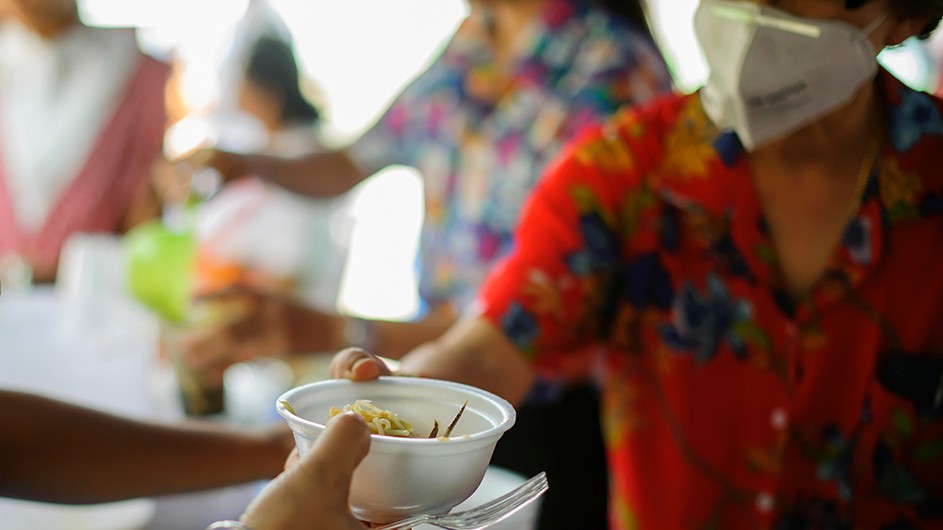Hunger is growing in America in the midst of the coronavirus pandemic. Families who have never experienced food insecurity have a sudden need for nutritional assistance. Food banks are struggling to find ways to feed Americans who are out of work.
Not surprisingly, the Supplemental Nutrition Assistance Program (SNAP), formerly known as the Food Stamp Program, will see record high numbers of new applicants in coming weeks.
A recent survey by the Brookings Institution found that nearly one out of every five mothers with kids 12 or younger said their children are not getting enough to eat—a rate three times as high as it was in 2008 during the worst of the Great Recession.
SNAP is the nation’s most important anti-hunger program. It is unique in its ability to make big differences quickly for low-income families. Nearly half of all SNAP participants are children.
SNAP participation decreases food insecurity, health care costs and the risk of excessive weight gain. This is critical in light of reports that underlying medical conditions—in particular obesity—are associated with greater risk of severe illness from COVID-19.
The Families First Coronavirus Response Act passed in March provides temporary authority for the U.S. Department of Agriculture and states to adapt the SNAP Program to meet skyrocketing demand created by a COVID-19-related spike in unemployment.
Many states already have adopted measures to ease access for existing SNAP households, such as increasing the maximum monthly allotment, suspending reassessment of income eligibility after job loss and piloting an online purchasing program. States also have attempted to accelerate the review of new applications by temporarily waiving in-person interview requirements.
Amid deep economic suffering and worsening inequality created by the pandemic, it is imperative that the USDA and states avoid partisan debates about SNAP expansion. To avert a media narrative that focuses on government inefficiency and ineptitude in the face of growing childhood hunger, USDA officials should continue to approve measures that will streamline access to more benefits for the greatest number of households.
One key provision that more states are pursuing is the Pandemic EBT (P-EBT). This benefit allows households with children who would otherwise be entitled to free or reduced-price meals at schools to receive meal replacement benefits through SNAP. This measure may present an administrative challenge, especially when trying to reach households with eligible children that are not current SNAP participants. However, the USDA already has issued guidance on how states might manage this program expansion.
In just a month, there have been 20 million new unemployment claims, the worst such numbers in a century. SNAP is the single strongest tool we have to inoculate Americans against food insecurity while also rapidly bolstering the economy. It is vital to ensure that households affected by job and income loss have as much access to SNAP as possible. Fighting hunger should be one less battle that Americans are asked to face as we move forward on the path to recovery post-pandemic.

